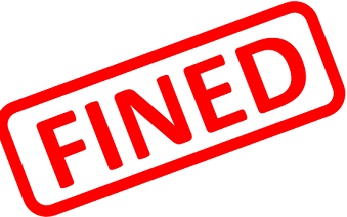When a person finishes filing bankruptcy, the Court ordinarily mails notices to all creditors ordering them to cease all debt collection activity. This Order, known as the Automatic Stay, applies to collection letters, telephone calls, scheduled foreclosures, repossessions, action on pending lawsuits, execution of judgments (including garnishments) and a wide variety of other creditor conduct.
While it is possible for a creditor to file a motion with the Bankruptcy Court to ask for the Automatic Stay to be lifted for various reasons, as long as the Stay is in force, bankruptcy law prohibits creditors from engaging in the prohibited contact.
If a creditor violates the Automatic Stay and persists in debt collection activity, Rule 9011 of the Bankruptcy Code states a debtor (person filing bankruptcy) can file an Adversary Complaint against the creditor. If a creditor is found to have willfully violated the Automatic Stay, the Court may assess sanctions against the creditor. These sanctions can include both actual damages incurred by the person filing bankruptcy and punitive sanctions which can vary depending upon the degree of creditor misconduct.
Protect Yourself From Creditors After Filing a Bankruptcy
If, after filing bankruptcy, a debtor is contacted inappropriately by a creditor, they should remind that creditor that a bankruptcy case has been filed. Providing a case number to the creditor is often wise, giving them the opportunity to verify the filing. Creditor representatives should be referred to your bankruptcy lawyers for any questions.
You should also carefully document the date, time and substance of these contacts, including the name of the person you spoke with on any telephone call. Keep a copy of any letters or written notices. If you and your attorney do decide to file an Adversary Complaint seeking sanctions, you will want to be able to document the pattern of creditor misconduct as thoroughly as possible.
Most creditors honor and obey the Automatic Stay with great diligence. Some violations are inadvertent and minor. If you find, however, that, after filing bankruptcy, you are the target of a persistent creditor who seems to ignore the court’s order to cease all collection activity, you should let your attorney know so proper actions can be taken.

